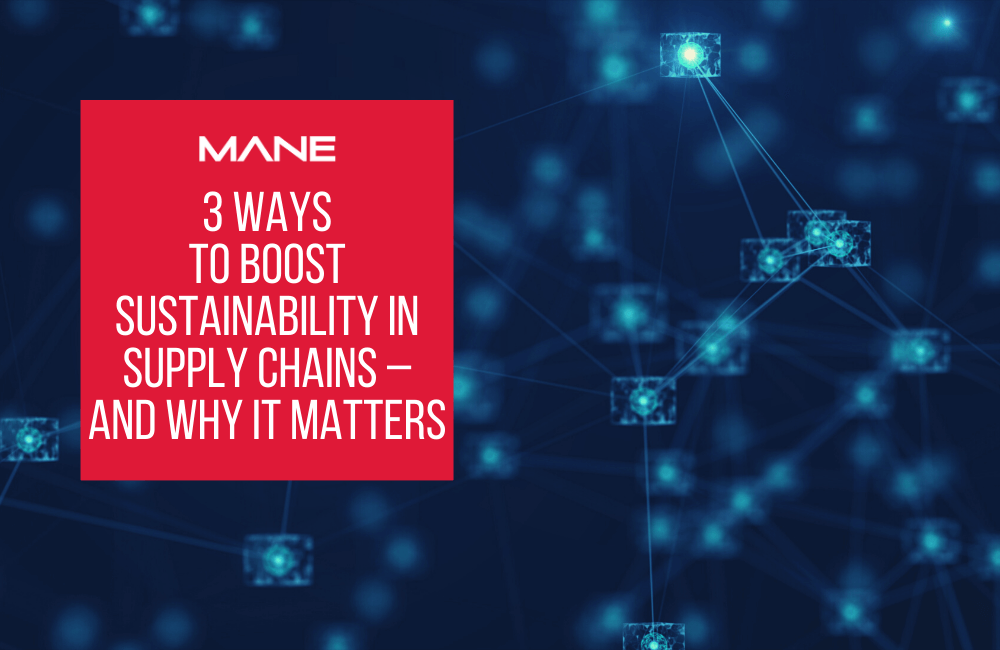3 ways to boost sustainability in supply chains – and why it matters
23 Nov, 202010 minsOnce COVID recovery is underway, consumer companies can look forward to major opportunities ...

Once COVID recovery is underway, consumer companies can look forward to major opportunities in the coming decade. By 2025, we can expect to see the number of people in the global consuming class grow to 175% of 2010 figures. And consumer spending is set to rise even more than consumer numbers, boosting the consumer sector by a projected 5% a year.
Because companies’ expected growth makes up about half their current share value, growth projections dramatically affect their returns to shareholders. And one factor that can destroy a company’s growth prospects is poor sustainability: negative environmental and social impacts.
Governments and industry leaders are calling for rapid and drastic sustainability improvements to fight the climate emergency. In the 2020s, consumer businesses must look to their supply chains to find the greatest opportunities for sustainability improvement.
Supply chains: sustainability’s missing link
A sustainable supply chain – the whole trail of suppliers and energy providers that support a company’s production and distribution of goods – will not only make your goods and services sustainable but also safeguard your supplies and reputation. Examples of how not to do it include GrainCorp, whose profits took a 64% hit when drought hit its suppliers, and the two apparel companies that lost their place on the “100 most reputable companies” list after the collapse of Bangladesh’s Rana Plaza factory claimed workers’ lives.
Yet few companies are actively working with suppliers to manage these sustainability risks. According to CDP research, only 25% are talking to their suppliers about reducing emissions. And for many consumer companies, they aren’t talking to all the businesses in their supply chain at all. They rely on subcontractors, meaning there’s little oversight into health and safety for workers.
This means consumer companies may be unaware of what’s happening at the other end of their supply chain, where human and animal rights abuses and environmental destruction are most likely to occur. The Sustainability Consortium found that under 1 in 5 companies have a full overview of sustainability performance in their supply chains, and over half have trouble determining sustainability issues in them.
If companies can’t see the problems, they can’t solve them. So the first way to improve sustainability is simple:
Spot the critical issues
Companies need to learn how human and natural resources are used in every link in their supply chains and consider the social, economic and environmental issues around each product separately, as they can be very different. Organisations like the Sustainability Consortium, the World Wildlife Fund, the Sustainability Accounting Standards Board, the Global Reporting Initiative and CDP offer standards and metrics to help companies measure their sustainability impact.
Link your sustainability goals to global ones
Once companies have spotted the problems, it’s time to set goals for reducing impact. This is best done by considering scientists’ recommended targets. For example, General Mills set a carbon-cutting goal for its whole supply chain that corresponds to the worldwide target of cutting emissions by 41-72% from 2010 to 2050.
Help suppliers manage their impact
Rather than expecting suppliers to meet these goals on their own, consumer companies need to use their influence to motivate and support them. Recently, companies have gone beyond setting rules and auditing, and started helping suppliers design and set up their own sustainability programmes that support their own goals as well as the consumer companies’.
The use of digital technology and data is becoming increasingly important here, with Unilever, for example, offering farmers in its supply chain the free use of its proprietary software to gather data on their own sustainability practices.
Finally, companies need to be willing to work together to hold suppliers accountable, rewarding good sustainability performance and withdrawing their business if it falls short.


